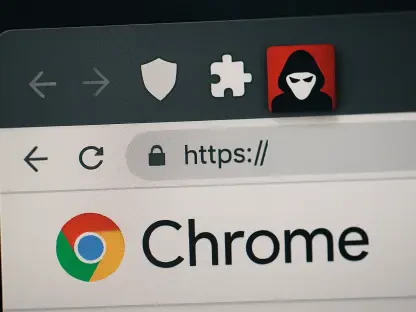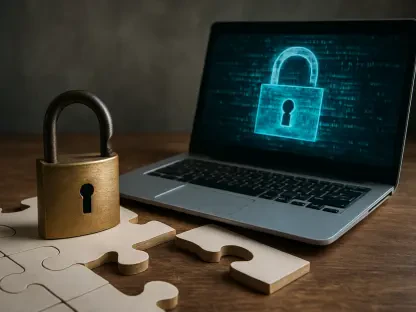In a groundbreaking investigation, authorities have apprehended a notorious Brazilian cybercriminal known by the alias “USDoD,” whose criminal exploits led to significant data breaches affecting major institutions, including the FBI’s InfraGard program and the consumer data broker National Public Data (NPD). This arrest sheds light on the sophisticated tactics employed by hackers to infiltrate highly secure systems and the vulnerabilities that can undermine even the most robust cybersecurity measures.
The Rise of USDoD
The rise of USDoD to infamy began with several high-profile cybercrimes that demonstrated his mastery of hacking and social engineering. The 33-year-old suspect from Belo Horizonte, Brazil, whose real identity is speculated to be Luan BG, became widely known in cybercrime communities under different monikers such as “Equation Corp” and “NetSec.” His activities included trading stolen credentials on RaidForums, a now-defunct cybercrime platform. Posting under the handle “NetSec,” he advertised stolen credentials, particularly targeting Brazilian Federal Police officers, showcasing his ability to exploit even the local law enforcement.
In an audacious move, USDoD infiltrated the FBI’s InfraGard program in December 2022. InfraGard is a partnership between the FBI and private sector professionals designed to protect national infrastructure. By pretending to be the CEO of a major U.S. financial company, USDoD manipulated the program’s security protocols, gaining access to the contact information of over 80,000 members. His ability to breach such a high-security system underscores the significant threat posed by social engineering tactics. The exploit highlighted not only his technical acumen but also the disturbing ease with which human error could be leveraged to gain unauthorized access.
The FBI’s InfraGard Breach
The FBI’s InfraGard program, known for its stringent security protocols, became an unforeseen victim of USDoD’s sophisticated social engineering skills. Pretending to be a top executive, he navigated the verification process and accessed the program’s sensitive database containing contact details of thousands of members, representing critical infrastructure sectors. This breach was particularly alarming because InfraGard members are responsible for protecting pivotal aspects of national security, including energy, financial services, and telecommunications.
The leak of this information posed grave security risks, as InfraGard members are often in charge of protecting vital national infrastructure. USDoD’s hack not only exposed their identities but also served as a stark reminder of the vulnerabilities that even the most secure systems can have. The incident prompted immediate reviews and reinforced the necessity for enhanced security training focused on thwarting social engineering attacks. Moving forward, the FBI and similar organizations are likely to invest heavily in improved verification processes and additional layers of security to safeguard against such exploits.
The National Public Data Breach
Alongside the InfraGard breach, USDoD orchestrated another massive data heist targeting National Public Data (NPD), a Florida-based consumer data broker. The breach at NPD was facilitated by a glaring oversight: the company had inadvertently published their passwords online. Exploiting this lapse, USDoD gained unauthorized access to their database, exposing Social Security numbers, personal addresses, and other sensitive information for a large segment of the U.S. population. This incident accentuates the significant impact simple security oversights can have on consumer data protection.
The ramifications for NPD were severe: the company faced financial ruination, declared bankruptcy, and became embroiled in numerous class-action lawsuits. This incident serves as a cautionary tale for all organizations that manage sensitive data, emphasizing the critical need for strict data security protocols and vigilance against simple yet catastrophic errors. As a result of this breach, reforms are being considered across various data brokerage firms, with a sharp focus on stringent access controls and regular security audits to preempt similar vulnerabilities.
Brazilian Federal Police’s Role in the Investigation
The arrest of USDoD was a collaborative effort between Brazilian Federal Police and cyber experts. Initial reports by Brazilian news outlet TV Globo were later corroborated by the Portuguese tech news outlet Tecmundo, which identified the suspect as Luan BG. The investigative work was bolstered by findings from the security firm CrowdStrike, who linked recent high-profile breaches to USDoD. Despite not commenting publicly, CrowdStrike’s findings were indirectly confirmed by USDoD himself, lending credibility to their investigative prowess.
Despite his notoriety, USDoD maintained an active presence in the hacking community, often flaunting his exploits in interviews with tech news outlets. His transparency, coupled with credible intelligence from cybersecurity firms, made it easier for authorities to track and apprehend him. This arrest marks a significant victory in the ongoing battle against international cybercrime. However, it also reveals the persistent challenge of keeping pace with cybercriminals who constantly adapt and evolve, necessitating continuous advancements in cybersecurity strategies and international law enforcement collaboration.
Jurisdictional Challenges and Broader Implications
USDoD’s crimes were not only an affront to the targeted institutions but also served as a sobering reminder of the escalating cyber threats facing organizations globally. Hackers like USDoD often employ advanced techniques such as phishing, social engineering, and exploiting unpatched software vulnerabilities to gain unauthorized access. The FBI’s InfraGard program, designed to protect national infrastructure, and NPD’s treasure trove of consumer data were prime targets, showing that no system is entirely foolproof. This case underscores the urgent need for enhanced cybersecurity protocols and constant vigilance in an increasingly digital world.









